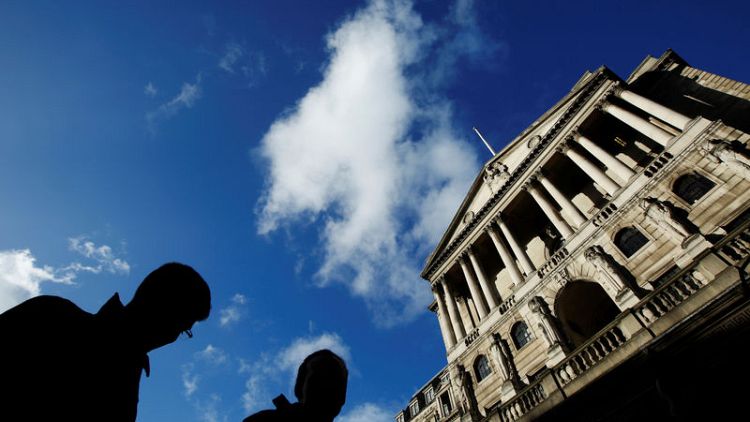By William Schomberg
LONDON (Reuters) - The Bank of England would probably need to raise interest rates faster than investors expect if Britain manages a smooth exit from the European Union, though Brexit's implications for the BoE remain unclear, rate-setter Michael Saunders said.
Britain is due to leave the EU, its main trading partner, in little more than four months' time and Prime Minister Theresa May is struggling to get her Conservative Party behind the withdrawal deal she has hammered out with Brussels.
Saunders said a Brexit deal would boost Britain's economy and probably justify further increases in rates.
"My own hunch is that, conditioned on our Brexit assumptions, capacity pressures will probably build somewhat faster than envisaged in our latest Inflation Report projections, reinforcing upward pressure on pay growth," he said in a speech to business leaders in Bath, southwest England.
"In this case, we would probably need to return to something like a neutral stance rather earlier than implied by the current yield curve."
Financial markets only fully price in the possibility of the next BoE rate hike for the end of 2019.
Saunders was one of the BoE's earliest advocates for its gradual push to raise borrowing costs away from their all-time lows, which started in November last year.
However, he warned it was hard to be sure that higher rates would be needed in the event of a smooth Brexit because the inflation pressure from stronger economic growth could be offset by the disinflationary effects of a rise in sterling.
"It is unclear whether it would be appropriate to tighten monetary policy more or less than implied by the current yield curve, or indeed not adjust policy at all, or to loosen," he said in his speech, most of which dealt with the demographic challenge to Britain's economy in the decades ahead.
It was also hard to tell what the BoE would need to do if Britain left the EU with no transition deal, he added.
"The net effect would probably be higher inflation and lower growth, and it may be hard to tell in real time whether any weakness in growth exceeds the deterioration in potential growth," he said. "The monetary policy implications could go in either direction."
BoE Governor Mark Carney and other top officials have also previously warned investors not to assume they would cut rates in the event of a no-deal Brexit shock to Britain's economy.
(Editing by David Milliken)



